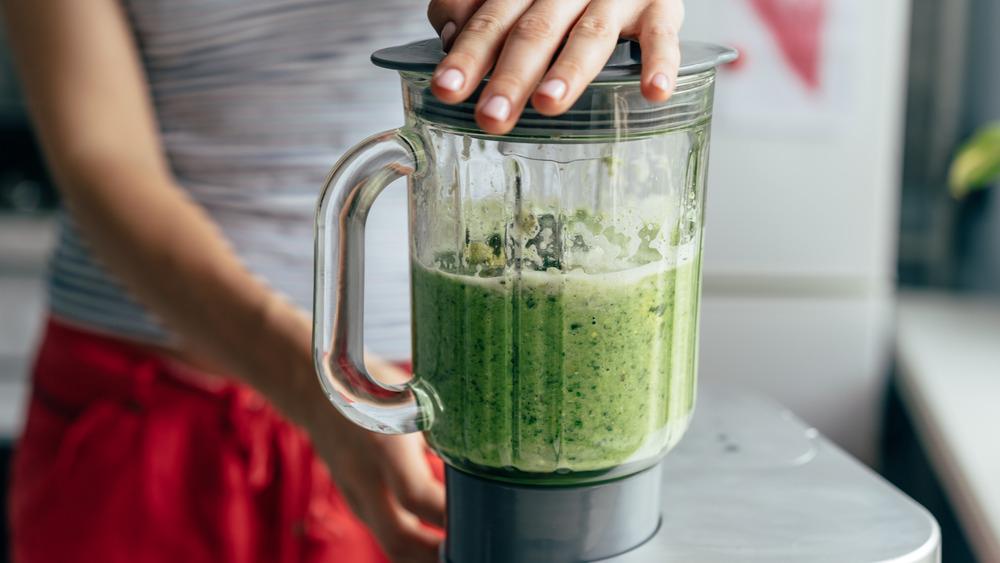How Well Meal Replacement Shakes Really Work For Weight Loss
Replacing a meal with a shake, smoothie or drink for weight loss purposes is not a new concept. Slimfast weight-loss drinks were trending in the 80's, claiming to replace breakfast and lunch with a shake would keep you full and help the weight come off (via Healthline). When it comes to drinking our way to weight loss, we have certainly come a long way from those small chocolate and vanilla flavored cans.
A liquid meal can be purchased pre-prepared and ready to drink, or come in a powdered form that you can mix into a liquid or smoothie blend. Easy to take for an on the go breakfast or a working lunch, the meal replacement shake can help you avoid less healthy options, like fast food, which can be high in calories, saturated fats, and preservatives. Meal replacement shakes are typically between 200-400 calories and research shows some can help you feel full and promote weight loss (via Healthline). By choosing healthier food options, you are likely to consume less calories and increase your chances of losing weight (per Harvard Health Publishing).
Health benefits of a liquid meal
Aside from convenience, there are other benefits to choosing a liquid meal over your breakfast or lunch. Many meal replacement shakes are packed with essential nutrients like fiber, protein, vitamins, and minerals, which you may not typically get in a bowl of cereal or deli sandwich. Research shows that getting an adequate amount of protein may help reduce body fat, improve weight maintenance, and keep you fuller for longer. According to Harvard Health Publishing, diets high in fiber, specifically 30 grams per day, assist with weight loss and maintaining healthier blood pressure levels.
While there are perks to supplementing with meal replacement shakes, it is important to know that not all are made with nutrient dense ingredients. When choosing a pre-made shake to add to your diet, check the ingredients for added sugars, partially hydrogenated vegetable oils, artificial flavors, and preservatives. You should choose a shake high in protein and fiber, and with a minimum of 33 percent of the daily value for vitamins and minerals. Avoid shakes with more than 10 grams of sugar per serving, ingredients that you cannot pronounce, and those with corn syrup.


